
Robert Findlay FRSE (1721-1814), was a Scottish minister. In 1783 he was a co-founder of the Royal Society of Edinburgh along with many other leading figures of the Scottish Enlightenment.

Robert Findlay FRSE (1721-1814), was a Scottish minister. In 1783 he was a co-founder of the Royal Society of Edinburgh along with many other leading figures of the Scottish Enlightenment.
Findlay was born in March 1721 the son of William Findlay, a merchant in Kilmarnock in Ayrshire. [1] He was born 23 November 1721, was educated at Glasgow, Leyden, and Edinburgh, and was ordained a minister of the kirk of Scotland in 1744. He had charges successively at Stevenston (1743), Galston (1745), Paisley (1754), and St. David's Church, Glasgow (1756). He was given a Doctor of Divinity (DD) late in life (1776) by Glasgow University, and was appointed Professor of Divinity in the University of Glasgow in 1782, remaining in this role until death.
He died on 15 June 1814. He is buried in Ramshorn Cemetery on Ingram Street in Glasgow. [2]
He was married to Annabella Paterson.
Their son Robert Findlay (1745-1862) was a merchant in Glasgow.
He published in the 'Library' for July 1761 'A Letter to the Rev. Dr. Kennicott vindicating the Jews from the Charge of Corrupting Deut. xxvii. 4,' which, on Kennicott's replying in the 'Library,' he followed up with 'A Second Letter to Dr. Kennicott upon the same subject, being an Answer to the Remarks in the "Library" for August 1761, and a further illustration of the argument.' This letter he sent to the 'Library ;' but the editor of that magazine having had enough of the controversy, it appeared separately in January 1762. Both letters were signed 'Philalethes.' A more ambitious task next engaged Findlay's attention, viz. an examination of the views on the credibility of Josephus and the Jewish and Christian Scriptures propounded by Voltaire in his 'Philosophie de l'Histoire.' This work appeared under the title of ' A Vindication of the Sacred Books and of Josephus, especially the former, from various misrepresentations and cavils of the celebrated M. de Voltaire,' Glasgow, 1770, 8vo. Findlay also published a pamphlet on 'The Divine Inspiration of the Jewish Scriptures and Old Testament,' London, 1803, 8vo. [3]
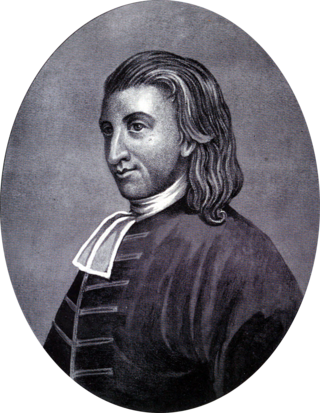
Thomas Boston was a Scottish Presbyterian church leader, theologian and philosopher. Boston was successively schoolmaster at Glencairn, and minister of Simprin in Berwickshire, and Ettrick in Selkirkshire. In addition to his best-known work, Human Nature in Its Fourfold State, one of the religious classics of Scotland, he wrote an original little book, The Crook in the Lot, and a learned treatise on the Hebrew points. He also took a leading part in the Courts of the Church in what was known as the "Marrow Controversy," regarding the merits of an English work, The Marrow of Modern Divinity, which he defended against the attacks of the "Moderate" party in the Church. Boston, if unduly introspective, was a man of singular piety and amiability. His autobiography is an interesting record of Scottish life, full of sincerity and tenderness, and not devoid of humorous touches, intentional and otherwise.
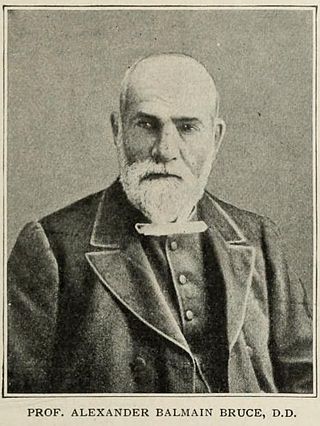
Alexander Balmain Bruce was a Scottish churchman and theologian. He was a minister of the Free Church of Scotland.
Robert Flint LLD DD was a Scottish theologian and philosopher who wrote also on sociology.

William Robertson FRSE FSA Scot was a Scottish historian, cleric, and educator who served as Principal of the University of Edinburgh, Chaplain of Stirling Castle, and one of the King's Chaplains in Scotland.

Robert Wodrow was a Scottish minister and historian, known as a chronicler and defender of the Covenanters. Robert Wodrow was born at Glasgow, where his father, James Wodrow, was a professor of divinity. Robert was educated at the university and was librarian from 1697 to 1701. From 1703 till his death, he was parish minister at Eastwood, near Glasgow. He had sixteen children, his son Patrick being the "auld Wodrow" of Burns's poem Twa Herds.

John Erskine (1721–1803), the Scottish theologian, was born near Dunfermline at Carnock on 2 June 1721. His father was the great Scottish jurist John Erskine of Carnock and his grandfather was Colonel John Erskine of Cardross who had been in William of Orange's army when it invaded England in the Glorious Revolution of 1688.

James Buchanan (1804–1870) was a preacher and theological writer. He was born in 1804 at Paisley, and studied at the university of Glasgow. In 1827 he was ordained Church of Scotland minister of Roslin, near Edinburgh, and in 1828 he was translated to the large and important charge of North Leith. In this charge he attained great fame as a preacher, being remarkable or a clear, vigorous, and flowing style, a graceful manner, a vein of thrilling tenderness, broken from time to time by passionate appeals, all in the most pronounced evangelic strain. In 1840 Buchanan was translated to the High Church, Edinburgh, and in 1843, after the disruption, he became first minister of St. Stephen‘s Free Church. In 1845 he was appointed professor of apologetics in the New College, Edinburgh, and in 1847, on the death of Dr. Chalmers, he was transferred to the chair of systematic theology, continuing there till his resignation in 1868.

Robert Watt was a Scottish physician and bibliographer.
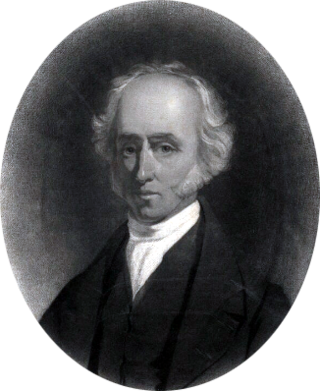
Robert Gordon FRSE was a Scottish minister and author. Originally prominent in the Church of Scotland, and serving as Moderator of the General Assembly in 1841, following the Disruption of 1843 he joined the Free Church of Scotland and became a prominent figure in that church.
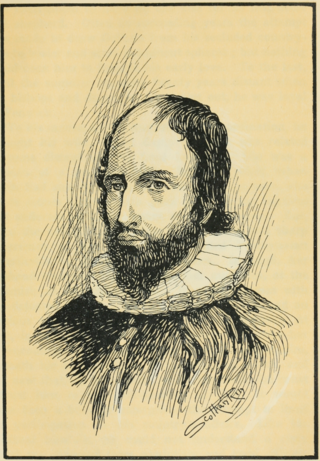
William Guthrie (1620–1665) was a Scottish Covenanter minister and author. He was the first minister of Fenwick parish church in Ayrshire, Scotland. He is known primarily for his book on assurance, The Christian's Great Interest.
Archibald Barr LLD, FRS FRSE was a Scottish scientific engineer, inventor and businessman. He was a co-founder of Barr & Stroud, and invented the Barr & Stroud Rangefinder.
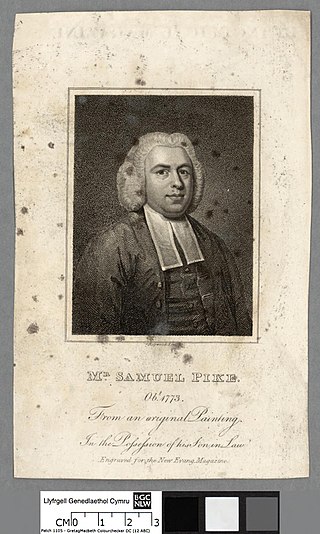
Samuel Pike (1717?–1773) was a British clergyman and a member of a religious movement known as Sandemanians.
William Leechman or Leishman (1706–1785) was a Scottish minister, theologian and academic. He was Professor of Divinity and later Principal at Glasgow University.
Thomas Rutherforth (1712–1771) was an English churchman and academic, Regius Professor of Divinity at Cambridge from 1745, and Archdeacon of Essex from 1752.
Andrew Gray (1633–1656), was a Scottish divine. Gray was baptised on 23 August 1633. He was the son of Sir William Gray of Pittendrum, and Egidia Smith. He graduated from St Andrews University with an M.A. in 1651. He was licensed as a minister in 1653 and called on 5 September. He was ordained by the Protesters on 3 November 1653 but his ministry was a short one. He died on 8 February 1656.
William Abernethy Drummond, was a physician who later became Bishop of Edinburgh.
Events from the year 1814 in Scotland.

The Ramshorn Cemetery is a cemetery in Scotland and one of Glasgow's older burial grounds, located within the Merchant City district, and along with its accompanying church, is owned by the University of Strathclyde. It has had various names, both official and unofficial: North West Parish Kirkyard; St David's Kirkyard; and Ramshorn and Blackfriars. The latter name tells of its link to Blackfriars Church, linking in turn to the pre-Reformation connection to the Blackfriars Monastery in Glasgow.

James MacGregor FRSE (1832–1910) was a Scottish minister and philanthropist. He was Moderator of the General Assembly of the Church of Scotland in 1891. In 1886 he was made Chaplain in Ordinary to Queen Victoria, in 1901 Chaplain to King Edward VII, and in 1910 to King George V, serving three monarchs in all.
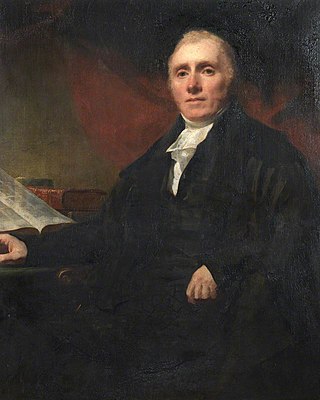
Stevenson McGill (1765–1840) was a Scottish Presbyterian minister of the Church of Scotland who served as Moderator of the General Assembly of the Church of Scotland in 1828. He was an author and was elected to be a professor of divinity at Glasgow University.